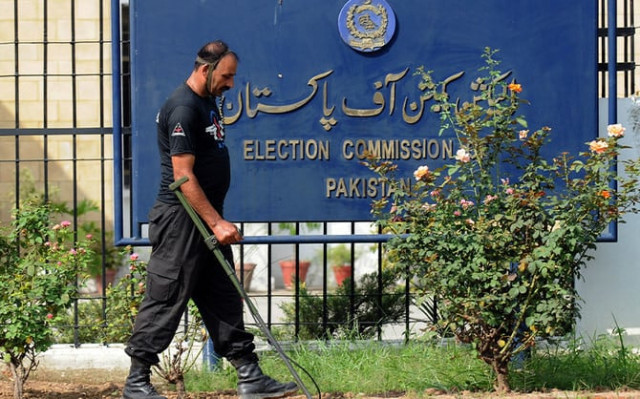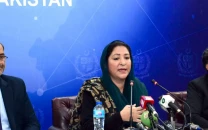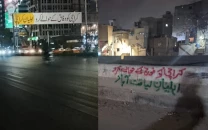Funds release silences election delay gossip
Rs17.4b given to ECP is stated to be sufficient to meet expenses till February 8

The finance ministry on Tuesday released Rs17.4 billion funds to the Election Commission of Pakistan (ECP), oiling the election machinery enough to conduct the polls on time and throwing the responsibility back on the shoulders of the vote supervising body.
The Finance Division released the funds, the ministry said in a statement after handing over the control of the money to the ECP. The ministry released funds only after the finance secretary was summoned by the ECP for not honouring its request for the release of Rs17.4 billion sent to the ministry on Nov 14.
The request remained stuck up in the Q Block for over three weeks. Sources said that one of the reasons for the delay was a request for the re-allocation of another Rs10 billion that the ECP had surrendered in the previous fiscal year.
The ministry stated that the Rs17.4 billion had been given in addition to Rs10 billion released in July 2023 for the conduct of the general elections in the country. This brought the total amount released to the ECP for the elections purpose to Rs27.4 billion, it added.
“The Finance Division remains committed to provision of funds as and when required by the Election Commission of Pakistan”, according to the finance ministry statement.
The ECP on Monday stirred a controversy when it leaked to the media that the finance ministry was not giving due funds for conducting the elections and it had been decided to take up the matter with Prime Minister Anwaarul Haq Kakar.
This gave rise to suspicions that a conspiracy was being hatched to delay the elections beyond February 8th. However, by releasing Rs17.4 billion the ministry has thrown the responsibility back on the shoulders of the ECP and the ministry can no more be blamed for any delay in the polls.
Read Delay looms large on general elections
The international financial institutions are also keenly watching the developments on the election front and any delay in timely holding of the vote may not bode well for Pakistan’s plans to remain engaged with the International Monetary Fund (IMF).
The IMF has released its Executive Board meeting calendar till December 15th and Pakistan’s case has not yet been listed for the approval of the first review of the programme and the release of the $700 million loan tranche.
The country needs political and economic stability to come out of one of the worst economic crises.
For this fiscal year, the National Assembly had approved Rs42 billion for holding the general elections. After already releasing two tranches, Rs14.6 billion still remains pending, which the ECP will need post-elections to clear liabilities of the military and the police on account of election duty.
The fresh Rs17.4 billion would be utilised for making payments to the staff being hired for the election duty and meeting other expenses. The funds are stated to sufficient to meet the financing needs till February 8 – the polling day.
Also on Monday, the ECP requested the federal government for the deployment of army and civil armed forces personnel at polling stations during the elections. So far, the ECP has been assured of 108,500 police force against its requirement of 277,610 personnel for holding the elections in Punjab.
Similarly, Sindh assured 105,000 police personnel against the ECP need of 123,500 security officers. The provinces of Balochistan and Khyber-Pakhtunkhwa are also grappling with a shortage of security personnel.
According to the constitution, the ECP was obligated to conduct polls within 90 days, following the dissolution of assemblies, a deadline of November 10, however, the electoral supervising declared its inability to hold the elections within the specified timeframe as it was supposed to complete the delimitation process in view of the new population census notified in August.
The ECP has already received three petitions seeking postponement in elections on various grounds, including the possible snowfall in northern areas of the country in the month of February.


















COMMENTS
Comments are moderated and generally will be posted if they are on-topic and not abusive.
For more information, please see our Comments FAQ